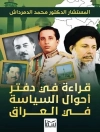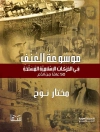The book takes as its premise the argument that diverse learner groups are a fact of demographic change that should be considered foundational in the preparation of teachers rather than be problematized as a challenge. It promotes the idea of teacher education for inclusive education based on a consideration of what it means to educate all children together. Divided into four parts, the book considers key issues for teacher education, teacher agency, teacher education for diversity, and a research agenda for the future.
In today’s world, the demographic profile of students in schools is more complex than ever before, and the increasing cultural, linguistic and developmental diversity of today’s classrooms, along with the pressure to achieve high academic standards for everybody has significant implications for how classroom teachers should be prepared to meet these demands. This book advances a new understanding of inclusive education that addresses the limitations inherent in current approaches that problematize differences between learner groups by promoting a view of difference as an aspect of human individuality. It considers the implications of the research evidence underpinning teacher education for diversity and makes suggestions for future research in the field.
สารบัญ
1. Teacher Education for the Changing Demographics of Schooling: Policy, Practice and Research; Lani Florian and Nataša Pantić.- Part I: Key Issues for Teacher Education .- 2. Teacher Education for the Changing Demographics of Schooling: Inclusive Education for Each and Every Learner; Lani Florian.- 3. European Teacher Education in the Grip of “Academic Tribes and Territories”; Pavel Zgaga.- 4. Diversity, Development, Devolution: The Three Ds of UK Teacher Education and Professional Development in the 21st Century; Ian Menter.- Part II: Teacher Agency .- 5. Educating Teachers as Agents of Social Justice: A Virtue Ethical Perspective; Nataša Pantić and David Carr.- 6. A Knowledge Base for Teachers on Teacher-Student Relationships; Theo Wubbels.- 7. The Place of Leadership Development for Change Agency in Teacher Education Curricula for Diversity; Christine Forde and Beth Dickson.- Part III: Teacher Education for Diversity .- 8. How Effectively are Mainstream Teachers Prepared to Meet the Needs of Learners for whom English is an Additional Language?; Charles Anderson, Pauline Sangster, Yvonne Foley and Hazel Crichton.- 9. Teaching Culturally Diverse Pupils: How Ready are Scottish Student-Teachers?; Ninetta Santoro.- 10. A Framework for Preparing Teachers for Classrooms that are Inclusive of All Students; Ana Maria Villegas, Francesca Ciotoli and Tamara Lucas.- 11. Navigating the Boundaries of Difference: Using Collaboration in Inquiry to Develop Teaching and Progress Student Learning; Joanne Deppeler.- 12. Professional Learning to Support the Development of Inclusive Curricula in Scotland; Mhairi C. Beaton and Jennifer Spratt.- 13. Feeling Our Way toward Inclusive Counter-Hegemonic Pedagogies in Teacher Education; Esther O. Ohito and Celia Oyler.- 14. A Lifeworld Perspective on the Role of the Body in Developing Inclusive Pedagogy; Archie Graham.- Part IV: A Research Agenda for the Future .- 15. A Dynamic Model for the Next Generation of Research on Teacher Education for Inclusion; Linda P. Blanton and Marleen C. Pugach.- 16. Teacher Education for the Changing Demographics of Schooling: Pathways for Future Research; Lani Florian and Nataša Pantić.












